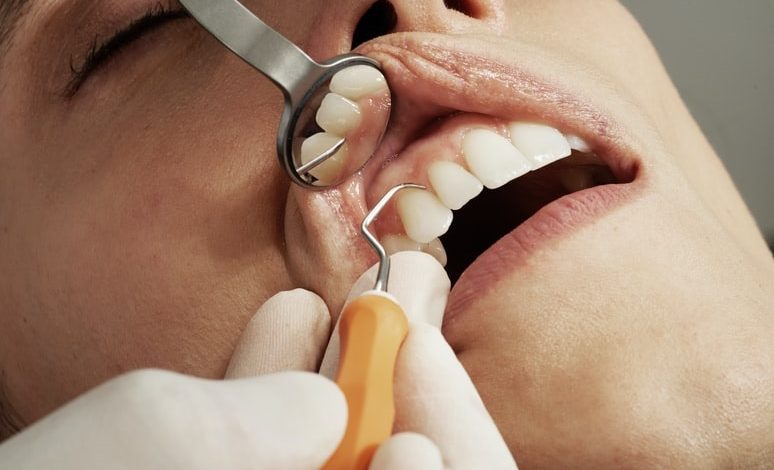The Process to Rapidly Recover from Dental Implant Surgery

You will need to avoid specific foods and drinks before and after dental implant surgery to speed up your recovery. Your oral surgeon will give you advice regarding how to minimize swelling and what medications to take. Keep your wound as free from food particles as possible so that it can heal as quickly as possible.
How Long Do Dental Implants Take to Heal?
There is no standard recovery period for all implant recipients because each patient’s oral state affects the recovery time. The following factors may have an impact on your recovery time:
- The total number of teeth removed and placed (single, multiple, or whole jaw)
- If your jawbone is in good enough condition for the implants to attach to,
- If your surgery involves the use of bone grafts,
- Individual variances and the healing process.
Your sensitivities and lifestyle habits may have a significant influence on the healing duration of your dental implants. For example, if you are smoking, you must abstain or limit your cigarettes for a week or two following your surgery. If you smoke after treatment, you may lengthen your recovery time, especially if you have grafting done.
If you had a straightforward implant insertion surgery with no grafts, you would most likely have very minimal to no inflammation or discomfort following the treatment. And when you do, it will most likely only last for a few weeks. To alleviate any pain, the dentist in Chandler will surely give you some medicines. You must be able to resume your usual diet after around 7 to 10 days. Nevertheless, patients may need to follow a soft diet for six weeks following surgery. Your dentist will help you understand the procedure better.
Is There Severe Pain After a Dental Implant?
Here you’ll find a general pain timeline after your surgery:
- After 1 Week of Dental Implant
It’s natural for you to be in discomfort at this time.
- Pain from Dental Implants After 2 Weeks
At this point, your discomfort should have subsided. If not, contact your dentist right away because this might suggest an infection.
- Pain from Dental Implants After 3 Months
If you’re in pain right now, it might be due to one of the following:
● Inadequate blood supply
● Autoimmune disorder
● A bacterial infection
● Interactions with other drugs
● Allergic reactivity
● Overburdening
● Damage to the tissue or nerves
● If your body does not accept the implant.
In any of these situations, contact your dentist right away.
What Are Some Important Dental Implant Recovery Tips?
After you’ve had your dental implant surgery, you’ll need to start taking care of your teeth so that your recuperation is as smooth and as short as possible. Here are some post-dental implant recommendations:
- Relax and enjoy yourself
Take the remainder of the day off after your dental surgery session to relax. If the dentist gave you a sedative, you will most likely still feel drowsy. As a result, you should avoid doing anything that requires concentration, such as driving. You should also refrain from engaging in intense activity. Avoid lifting or bending anything that might rupture blood clots and lead to infection. When it’s time to sleep, raise your head with additional pillows.
- Follow Instructions
Your dentist in Chandler may advise you to refrain from brushing and using mouthwash initially, since your mouth may be too delicate for conventional oral care at this stage. They may advise you to forgo brushing the sore region, but to wash your remaining teeth regularly. They may instruct you to rinse with salt water, which consists of six ounces of lukewarm water combined with a half teaspoon of salt.
- Apply Ice
It is common to have bruises or swelling on your face. Hold ice on your jaw for 30 minutes, then take it off for 20 minutes. Repeat throughout the first two days. If you have surgery on both edges of your jaw, apply ice to every front, rotating from side to side. After a few days, the puffiness should go down. If it worsens, you discover pus, or you have a temperature, you may have an infection. Inform your dentist right away.
- Keep an eye on the blood clot
Make every effort not to disrupt the clot while it heals the sores in your mouth. As a result, avoid carbonated beverages, alcohol, and drinking with a straw. Also, don’t smoke for a few days following your surgery, and try not to spit.
- Be Wary About What You Consume
After your surgery, you should eat soft, cold meals. Some good choices are:
- Applesauce
- Yogurt
- Oatmeal (instant)
- Soup, but only lukewarm
Foods that are overly cold, hot, chewy, rough, or spicy should be avoided.
- Take All Pain Medicines
You will probably need pain medicine at first to manage your pain. NSAIDs and acetaminophen are sometimes enough to relieve pain over the counter, but in some cases, your dentist might prescribe something stronger.
- Pay Attention
You should watch out for prolonged fevers, infections, or swelling. If you experience difficulty breathing or swallowing, let your dentist know. There is also a possibility that you could be allergic to the anesthetic your dentist administered. In this case, call your dentist immediately and go to the emergency room.
- Follow-up
Please keep all of your scheduled follow-up appointments after surgery so that the dentist can ensure you are healing properly.
- Practice good dental hygiene
Make sure you brush the teeth around the implant to prevent food particles from getting stuck there and causing infection.
It is important to follow the instructions provided by your dental surgeon after any dental surgery since they will give specific instructions for your procedure.
Visit – https://thetrustblog.com/




